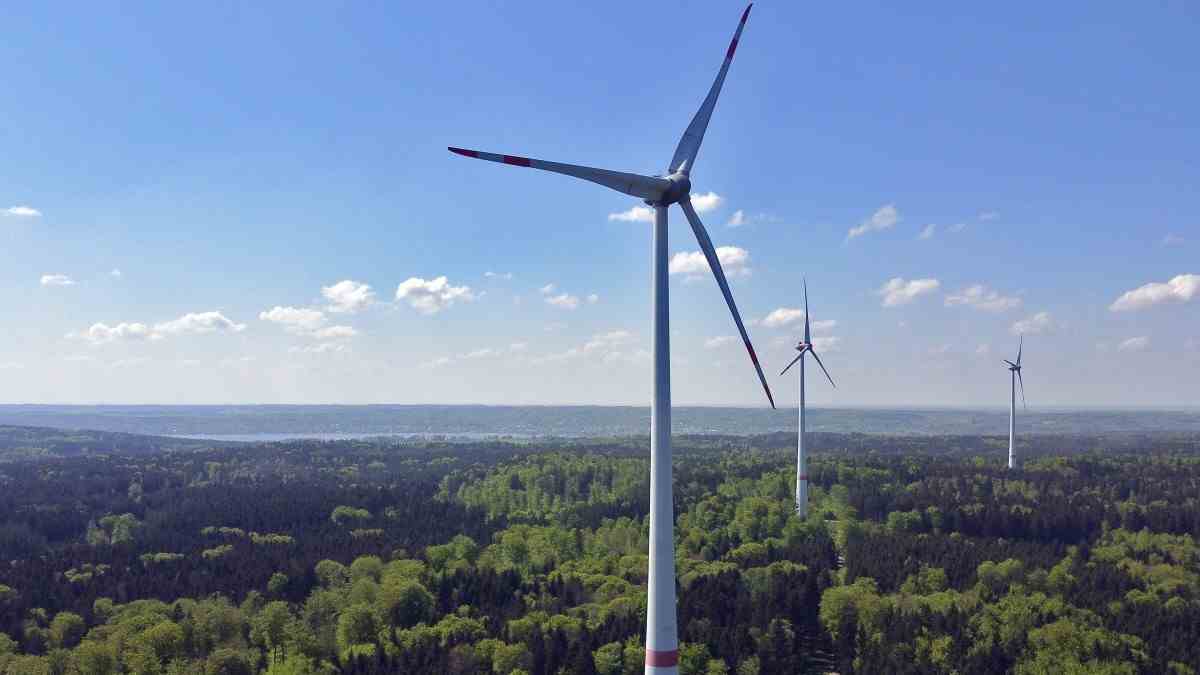Robert Habeck gets mail from Munich, Prime Minister Markus Söder (CSU) speaks from 30 pages, which “go to the Federal Minister of Economics in these hours”. It is the Bavarian energy concept that his cabinet decided on Tuesday. It is based on a compromise on wind power that the CSU parliamentary group recently drew up. And it contains a bundle of plans and demands, for example for solar systems, hydropower or biomass, there are “no first and second-class renewable energies,” emphasizes Söder. The nuclear power plants can also be found there. “Not just a few wind questions were written into the concept”.
By 2030, electricity generation from renewable energies in Bavaria is to be doubled overall. He doesn’t think much of slogans like “Freeze for peace”, said Söder. Bavaria is the industrial location with the most jobs nationwide. Now there is another reason for this concept. In January, even before the attack on Ukraine, Habeck was a guest in Munich to discuss the energy transition. The federal government would like to overturn the 10-hour distance rule, which often stands in the way of the construction of new wind turbines in Bavaria; and he wants to see such systems on at least two percent of the country’s territory. According to Söder, he stayed with Habeck in such a way that fewer wind turbines could be compensated for by other regenerative areas. The concept should go to Habeck by March, which is now delayed in May.
In any case, Söder had poked fun at Habeck on Monday, in the role of CSU boss. “We already expect that the commitments from January are in place,” he said after a meeting of his party executive. He has the feeling that nobody in Berlin remembers the agreement at the time, that a breach of word is imminent. Because the federal government could simply delete the 10-H rule completely against the will of Bavaria, that was heard more often recently. Economics Minister Hubert Aiwanger (FW) called this a sword of Damocles on Tuesday. Söder warned Habeck against going through with it, that would be a “difficult political style” and would not do justice to the matter. That seemed milder in pitch than the day before.
Söder speaks of “home energy” – perhaps a new slogan
So now the broad Bavarian package, Söder speaks of home energy, maybe a new slogan. Overall, you want to use “every little thing”; also biomass – “fits in perfectly with Bavaria and the rural area” – or, for example, geothermal energy, where the development of northern Bavaria is a goal. According to Söder, the photovoltaic output is to be tripled by 2030, with large model projects on Bavarian state estates or systems “on all suitable” state buildings contributing to this. New locations are to be examined for hydropower, for example on the Salzach. When it comes to wind power, the cabinet is sticking to the 10-hour rule, but wants to relax it generously. For example in forests, on motorways or main railway lines and in the vicinity of industrial areas. That’s how the CSU parliamentary group presented it. For such exceptions, a reduced distance of 1000 meters applies. The rule has so far stated that wind turbines must be at least ten times their height (usually 2000 meters) away from residential buildings.
At least 800 new wind turbines are to be made possible with this, and two percent of the country’s area is definitely being targeted. However, neither the exact number nor a time frame can be clearly defined. You open a new chapter, clear the way, said Aiwanger. But “the market, the investor will first have to fulfill that”, there is “no state planned economy”. A “handful of years” can be assumed due to the shortage of construction companies and material, but also the long approval period. Here, as in almost all energy sectors, the federal government must also deliver.
Aiwanger says that gambling in Berlin is indecent
Söder defended sticking to 10H in principle, without the rule the citizens would have “nothing to say anymore”, there is a risk of an “asparagus shock”, “discontent in the villages” and “bad blood” in many places. With wind power, as with other renewables, the state government wants to “make citizens partners in the energy transition, not those affected”. It is possible that the financial participation of municipalities or civil communities will be newly regulated – that the investors would have to give them the opportunity to participate.
Because Söder and Aiwanger do not consider rapid independence from Russian gas to be possible, they continue to demand longer service lives for nuclear power plants, temporarily. Aiwanger demands “finally an honest answer” from the federal government on technical matters, which has been promised for May. Any gambling in Berlin is indecent and robs valuable time. The Bund Naturschutz Bayern complained on Tuesday that longer terms would “not make a substantial contribution to the energy crisis” and that the “social consensus should not be revoked”. The AfD parliamentary group leader Gerd Mannes sees the opposite: At least here “the state government is finding its way back to the reality of energy policy”.
Habeck did not say anything specific about Bavaria’s energy plans at an appointment in Thuringia on Tuesday. Only: He wants to make sure that there is no unilateral distribution of wind turbines between the federal states. The state government should have followed Habeck’s greeting at the party conference of the Bavarian Greens on Saturday. “Refusing a difficult debate is not a contribution to the solution,” he said, referring to wind power. Even the Association of Bavarian Business, “certainly not a CSU district group,” wants to overturn 10H. Green party leader Katharina Schulze called the CSU “snorers”. On Tuesday, co-group leader Ludwig Hartmann added: Söder’s word about the “asparagus shock” particularly bothers him – this shows that the CSU “does not take the energy transition seriously”.

